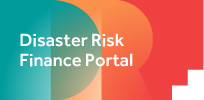As the world is grappling with the challenges brought about by the COVID-19 pandemic, many communities are experiencing the impact of compounded disasters, with COVID-19 and natural hazards stretching resources and testing coping capacities. Building resilience requires a multi-hazard, inclusive, all-of-society approach that considers the wide range of challenges a community may face, from climate change to pandemics to natural hazards.
But disasters, whether caused by viruses or natural hazards, are not felt uniformly by everyone in our societies. Gender, income inequality, geography, age, and other socioeconomic factors will determine how such events impact people.Disasters exacerbate many of the prevailing gender inequalities that exist in societies. While men are more likely to die from COVID-19, 70 percent of health workers and first responders are women and they are more likely to be exposed to the virus. At least 11 million girls are at high risk of never returning to school as a result of the COVID-19 pandemic, signaling future generations of girls who have fewer opportunities, are less-educated, and are more likely to marry early and be subjected to intimate partner violence.
While COVID-19 is a global disaster, it also presents an opportunity for change. The crisis gives us an opportunity to build back better and to put women at the centre of the recovery. If we are able to ensure our recovery to COVID-19 strengthens women’s leadership in disaster governance, supports multi-hazard risk assessments, preserves and protects women’s rights and enhances gender equality, we can build on this experience to strengthen resilience for all.
Objectives of the event
The event will:
1. Highlight the need for and effectiveness of gender-responsive disaster risk reduction in COVID-19 recovery.
2. Identify challenges and good practices in developing and implementing gender-responsive disaster risk reduction strategies, policies and plans at the country level.
3. Discuss the specific challenges of compounded disasters and how a gender-transformative approach can help reduce multi-hazard disaster risk.
Date and time
23 April 2021, 12:00 – 13:30 CEST

